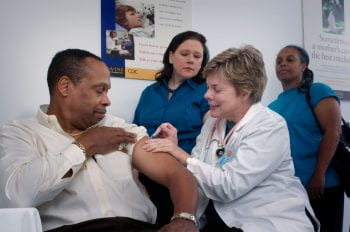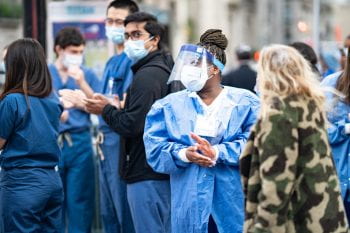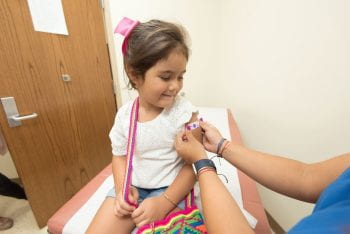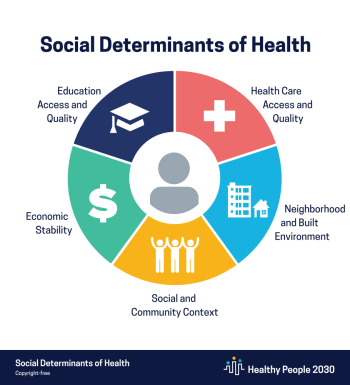To inform the Data Science for Social Impact initiative, SPI hosted a series of public roundtable discussions in partnership with the Mastercard Center for Inclusive Growth, data.org, and the St. Louis Regional Data Alliance in 2021. This report documents the information gathered at the first two discussions.
Tag: 2022
Cut me some slack! An exploration of slack resources and technology-mediated human capital investments in entrepreneurship

Purpose In this paper, the authors explore the relationship that slack resources and technology-mediated human capital investments can have on individuals’ entrepreneurial intentions. Focusing on human capital investments that individuals make through education and work, the authors analyze the relationship among formal online learning opportunities, informal skill development in the gig economy and entrepreneurial intentions. […]
Policy & Practice Strategies for Inclusive Growth in St. Louis

A 6-part event series, Inclusive Growth in St. Louis investigated who is left out of St. Louis’ economic growth benefits, the policies that have led to the unequal distribution of opportunities, and actionable recommendations to become a more inclusive economy. This report summarizes those discussions and recommendations.
Increased School Breakfast Participation from Policy and Program Innovation: The Community Eligibility Provision and Breakfast after the Bell

Abstract School meals provide significant access to food and nutrition for children and adolescents, particularly through universal free meal mechanisms. Alongside added nutritional meal requirements under the Healthy, Hunger-Free Kids Act (2010), schools can utilize meal program and policy mechanisms such as the Community Eligibility Provision (CEP) and Breakfast after the Bell (BATB) to increase […]
Do Racial and Ethnic Disparities in Savings and Job Loss during COVID-19 Explain Disparities in Housing Hardships? A Moderated Mediation Analysis

Abstract Despite the array of public programs offered to help households mitigate the economic impacts of the COVID-19 pandemic, many still needed to rely on savings, credit, or other assets to make ends meet. This reality may exacerbate existing social and economic inequities because racial and ethnic minorities often have lower access to assets and […]
Crashing without a Parachute: Racial and Educational Disparities in Unemployment during COVID-19

Abstract The burden of the COVID-19 pandemic has not been shouldered equally by American families. Black and Hispanic communities have been hit the hardest, with the pandemic often exacerbating existing disparities. Using nationally representative data, we assess the economic and public health effects of the pandemic among different socioeconomic groups and whether typical sources of […]
Introduction: The COVID-19 Shock to Our Deep Inequities: How to Mitigate the Impact

The COVID-19 pandemic affected nearly every aspect of household health, as well as the social and economic well-being of individuals and communities across the United States. Many in our society have faced and continue to face unprecedented challenges. Specifically, the pandemic put a microscope on inequities such as racial disparities in housing, health care, and […]
The Precarity of Self-Employment among Low- and Moderate-Income Households

Abstract Many people in the United States have achieved economic stability through self-employment and are often seen as embracing the entrepreneurial spirit and seizing opportunity. Yet, research also suggests that self-employment may be precarious for many people in the lower socioeconomic strata. Drawing on a unique dataset that combines longitudinal survey data with administrative tax […]
Public perceptions and the willingness to get vaccinated against COVID-19: Lessons from Israel

Abstract Objectives To explore the associations between vaccine hesitancy and demographic and socio-economic characteristics, as well as perspective towards the COVID-19 and its vaccines. Methods Data were collected through four online surveys on Israel’s representative sample in March (3/2 to 3/7, n = 1517), August (8/10–8/11, n = 925; 8/18–8/22, n = 1054), and September (9/22-9/24; n=1406), 2021. We employ a […]
The Impact of Tax Refund Delays on the Experience of Hardship Among Lower-Income Households

Abstract The Earned Income Tax Credit (EITC) provides substantial financial support to low-income workers in the USA, yet around a quarter of EITC payments are estimated to be erroneous or fraudulent. Beginning in 2017, the Protecting Americans from Tax Hikes Act of 2015 requires the Internal Revenue Service to spend additional time processing early EITC […]
Public perceptions and the willingness to get vaccinated against COVID-19: Lessons from Israel

Abstract Objectives To explore the associations between vaccine hesitancy and demographic and socio-economic characteristics, as well as perspective towards the COVID-19 and its vaccines. Methods Data were collected through four online surveys on Israel’s representative sample in March (3/2 to 3/7, n = 1517), August (8/10–8/11, n = 925; 8/18–8/22, n = 1054), and September (9/22-9/24; n=1406), 2021. We employ a […]
All over the Map: A Systematic Literature Review and State Policy Scan of Medicaid Buy-In Programs for Working Individuals with Disabilities

Abstract While supports for people with disabilities have increased, significant healthcare and financial barriers persist. State-administered Medicaid Buy-In programs for working people with disabilities, distinct from broader buy-in discussions that have emerged as some states consider expanding access to health insurance, are intended to incentivize employment and protect against a loss of Long-Term Services and […]
Nothing to show for it: Financial Distress and Re-Enrollment Aspirations for those with non-degreed debt

Abstract The number of individuals with student loan debt who do not earn their degrees is on the rise; nevertheless, there is little research that demonstrates their current circumstances and future aspirations. We address this knowledge gap by comparing the financial distresses and re-enrollment aspirations of student debt-holders who started college but did not earn […]
COVID-19 job and income loss and mental health: the mediating roles of financial assets and well-being and the moderating role of race/ethnicity

Abstract Prior research shows unemployment has a negative effect on mental health, yet whether this relationship is affected by financial factors is unknown. For example, having money in savings may mitigate the impact of job loss on mental health. We use structural equation modeling with data from the Socio-Economic Impacts of COVID-19 Survey with a […]
Who Protests, What Do They Protest, and Why?

Abstract We examine individuals’ decisions to attend protests during the summer of 2020. Our analysis examines two simultaneous movements: Black Lives Matter along with protests calling for less stringent public health measures to combat the COVID-19 (e.g., for swifter reopening of businesses). Our analysis is made possible by a unique staggered panel data set that […]
Disrupted and Disconnected: Child Activities, Social Skills, and Race/Ethnicity During the Pandemic

Abstract Early in the COVID-19 pandemic, parents reported that their children spent the majority of their time at home, which can dramatically change their activities and negatively impact their social skills. However, research has yet to uncover the relationships between changes in activities during the pandemic and children’s social skills, nor the degree to which […]
Disparate financial assistance support for small business owners
Small business owners experienced a drastic economic disruption caused by the COVID-19 pandemic. Government pandemic assistance failed to reach many small business owners, especially those historically underserved by financial institutions. Drawing on a 2021 survey of 246 small business owners, the Social Policy Institute at Washington University in St. Louis descriptively examined the extent to […]
Does a food insecurity intervention improve perinatal outcomes for mother and child? A randomized control study protocol of the Fresh Rx: Nourishing Healthy Starts program

Abstract Pregnancy and postpartum periods represent critical times to support nutrition and household food security, especially for families with limited or strained economic resources. The Fresh Rx: Nourishing Healthy Starts study uses a randomized design to examine a comprehensive, holistic “food is medicine” program targeting food insecure expectant mothers in an area with high rates […]
How Would Americans Respond to Direct Cash Transfers? Results from Two Survey Experiments

The Earned Income Tax Credit (EITC) provides substantial financial support to low-income Universal basic income has gained renewed interest among policymakers and researchers in the U.S. While research indicates that unconditional cash transfers produce diverse benefits for households, public support lags in part due to the predicted unemployment and frivolous spending. To understand how Americans […]
Experimental Evidence on Consumption, Saving, and Family Formation Responses to Student Debt Forgiveness (Links to an external site)

The Earned Income Tax Credit (EITC) provides substantial financial support to low-income Universal basic income has gained renewed interest among policymakers and researchers in the U.S. While research indicates that unconditional cash transfers produce diverse benefits for households, public support lags in part due to the predicted unemployment and frivolous As policy-makers grapple with whether […]
Household Spending Patterns and Hardships during COVID-19: A Comparative Study of the U.S. and Israel

Abstract The combined supply and demand shocks of the COVID-19 pandemic have created the largest consumer behavior shift in recent history, while exposing millions of households to material hardships like food insecurity and housing instability. In this study, we draw on national surveys conducted early in the pandemic to investigate the pandemic’s effects on self-reported […]
“Take my word for it”: Group Texts and Testimonials Enhance State and Federal Student Aid Applications

Abstract As the cost of college continues to rise, it has become increasingly important for students to apply for financial aid. However, many students are unaware of the benefits of the Free Application for Federal Student Aid (FAFSA). We launched a field experiment with a non-profit organization to explore how both informational- and testimonial-type text […]
At Home and on the Brink: U.S. Parents’ Mental Health during COVID-19

Abstract Though the COVID-19 pandemic required significant changes and adaptations for most Americans, parents faced acute challenges as they had to navigate rapidly changing schooling and child care policies requiring their children to spend more time at home. This study examines the effects of COVID-19 school and workplace policies as well as environmental and economic […]
Timely and well-targeted financial help during COVID-19: an employer-community partnership for hotel workers in New Orleans

Abstract Economic disruptions related to the COVID-19 pandemic left many households without the income necessary to meet basic needs. We describe an innovative, community-based partnership between a financial services company, philanthropic funders, and employers to provide financial assistance to hotel workers in New Orleans who lost jobs and income due to the COVID-19 pandemic. Results […]
Can Training and Apprentice Programs Increase Worker Wellbeing and Optimism?

Abstract While there are myriad studies that demonstrate the positive link between education and current life satisfaction, research has yet to formally explore life satisfaction and optimism in the context of reskilling programs. In this study, we evaluate the impacts of the LaunchCode program, a novel reskilling and apprentice program, on participant’s life satisfaction and […]
Disaggregating the Effects of STEM Education and Apprenticeships on Economic Mobility: Evidence From the LaunchCode Program

Abstract Despite an increase in employer-aligned certificate and apprenticeship programs, there is limited research examining the impact of these programs on economic outcomes. Moreover, for research that has explored the impact of these programs, it is unclear whether the outcomes are a product of the courses alone or the apprenticeships and other work-related experiences that […]
Usage and Impact of Benefits Among Frontline Healthcare Workers

Summary We completed a study about frontline healthcare workers – the benefits they get through work and how they are doing financially. This brief provides highlights from our survey to 2,321 workers and interviews with 30 workers.
Combatting Rising Healthcare Costs for Healthier Adults

Summary In 2020, healthcare expenditures averaged $12,530 per person, up 9.7% from 2019. In 2018, 19% of U.S. households had medical debt with $2,000 being the median amount owed. Over half of adults between 18 to 64 years of age are estimated to experience some form of medical financial hardship including medical bills or debt, […]
Democratizing the economy or introducing economic risk? Gig work during the COVID-19 pandemic

Summary Though the growth of the gig economy has coincided with increased economic precarity in the new economy, we know less about the extent to which gig work (compared with other self-employment arrangements and non-gig work) may fuel economic insecurity among American households. We fill this gap in the literature drawing on a sample of […]
How Would Americans Respond to Direct Cash Transfers? Results from Two Survey Experiments

Abstract Universal basic income has gained renewed interest among policymakers and researchers in the U.S. While research indicates that unconditional cash transfers produce diverse benefits for households, public support lags in part due to the predicted unemployment and frivolous spending. To understand how Americans would reorganize their lives around unconditional cash transfers, this paper examines […]
All over the Map: A Systematic Literature Review and State Policy Scan of Medicaid Buy-In Programs for Working Individuals with Disabilities

Abstract While supports for people with disabilities have increased, significant healthcare and financial barriers persist. State-administered Medicaid Buy-In programs for working people with disabilities, distinct from broader buy-in discussions that have emerged as some states consider expanding access to health insurance, are intended to incentivize employment and protect against a loss of Long-Term Services and […]
Predictors of and Barriers to Receipt of Advance Premium Tax Credits

Abstract Objectives: The Advance Premium Tax Credit (APTC) is designed to remedy lack of health insurance due to cost; however, approximately 30 million Americans remain without health insurance, and millions of households leave billions in tax credits unclaimed each year. A prerequisite of APTC is to file one’s taxes; however, few studies have examined tax filing […]
Prevalence of Long-COVID Among Low-Income and Marginalized Groups: Evidence From Israel

Abstract Objective: To identify the socioeconomic and demographic factors associated with the prevalence of self-reported long-COVID symptoms. Method: We examined the association between acute-COVID (SARS-CoV-2) and long-COVID symptoms, by a cross-sectional analysis of data obtained on a prospective online-survey, conducted from November to December 2021 on a nationally-representative sample of the Israeli population (N = 2,246). Results: Findings […]
Male Caregivers and Engagement in a Family Strengthening Program for Child Disruptive Behavior Disorders

Abstract Awareness and interest in involving male caregivers in child mental health treatment has grown, especially for youth with disruptive behavior disorders like oppositional defiant disorder (ODD). The purpose of this study was to examine the relationship between male caregiver involvement and treatment engagement for child ODD. Children (n = 122) ages 7–11 and their caregivers participated […]
Financial Well-being of Frontline Healthcare Workers: The Importance of Employer Benefits

Summary Frontline healthcare workers – especially direct care workers (DCWs), such as home health aides, struggle due to low pay, lack of benefits, and difficult working conditions. The need for these workers is growing. Unless frontline healthcare jobs improve, positions may be difficult to fill, and care for vulnerable members of society may be compromised. […]
Op-ed: We have the tools to end childhood poverty. Why don’t we?

One year after the last monthly Child Tax Credit payment, Congress has failed to gather enough support to extend this program, which our research suggests provided a critical safety net to American families. A key part of the American Rescue Plan Act, the Child Tax Credit provided $3,600 for each child under six and $3,000 for each child […]
Habitat for Humanity International awards $350,000 to investigate impact of housing on wealth building

Yung Chun, research assistant professor of the Social Policy Institute and Brown School at Washington University in St. Louis, received a $350,000 research award from Habitat for Humanity International to evaluate homeownership programs implemented by local Habitat affiliates and investigate the impact on wealth building for households with low incomes. Through this project, the Social […]
Social mobility as a priority will open doors for Israeli children – opinion (Links to an external site)
Social Policy Institute research was cited in this opinion piece on social mobility and its impact on children in Israel.
Changes in food insecurity levels during the COVID-19 economic crisis: Differences based on sociodemographic factors
By Oren Heller, research director, Israel; Yaniv Shlomo, Data Analyst, Israel; Hayley Kalb, communications assistant; Michal Grinstein-Weiss, founding director Food insecurity is a national problem with short and long-term consequences that harm the economy and society. This problem was exacerbated by the COVID-19 pandemic, as the labor market changed, affecting the disposable income of many […]
5 Ways Public Health Keeps Communities Healthy (Links to an external site)

Tyler Frank, doctoral research assistant, published this blog on GoodRX Health discussing how public health helps promote social justice, equity, and collective action, and how it keeps communities safe.
Improving perinatal outcomes for mother and child through Fresh Rx: Nourishing Health Starts
Dan Ferris, associate director of education and training for SPI, along with co-authors, recently published, “Does a food insecurity intervention improve perinatal outcomes for mother and child? A randomized control study protocol of the Fresh Rx: Nourishing Healthy Starts program,” in the Journal of Public Health Research.
Tighter school security leads to lower test scores, study finds (Links to an external site)
As schools around the country have ramped up security efforts in response to recent school shootings, a new study from the Brown School at Washington University in St. Louis suggests that increased surveillance is having a detrimental impact on academic performance.
Lessons from a global team
I truly believe we can accomplish more by stepping outside of our own culture and seek to understand and learn from each other. This is what makes SPI’s global approach to its work so impactful. I look forward to hosting WashU colleagues in Israel next time.
Human-centered approach to benefits research for health care field

By Kourtney Gilbert, program coordinator, SPI As researchers, we work a lot with numbers on a page. These numbers often feel distant from the people they represent, or the policy and practices we hope to inform. For this reason, when the Social Policy Institute launched its Building on Benefits research project aimed at better understanding […]
Should we cancel student debt or make loan repayment affordable? Lessons from the U.S. and U.K. (Links to an external site)
Mastercard partners with WashU to promote inclusive growth (Links to an external site)
Improving the financial strength of black small business owners (Links to an external site)
SPI research to be presented at Association for Public Policy Analysis and Management conference

Social Policy Institute research will be presented in seven different panels during the APPAM conference Nov. 17 to Nov. 18, 2022. Below are the papers and discussions that will be presented by the SPI team, including staff and faculty affiliates.
How do health care costs impact household finances and access to care?

Prioritizing affordability of care will be the first step to ensuring that a healthy life is feasible for everyone regardless of finances.
Household Financial Security: What can we learn from research in the U.K.?

A Trans-Atlantic Policy Forum could bring together academic researchers,
policy makers, advocates, and corporate leaders in the U.S. and U.K. to develop
insights to fuel changes in public policies and corporate behavior to promote the
financial security of low- and moderate-income (LMI) individuals and families.